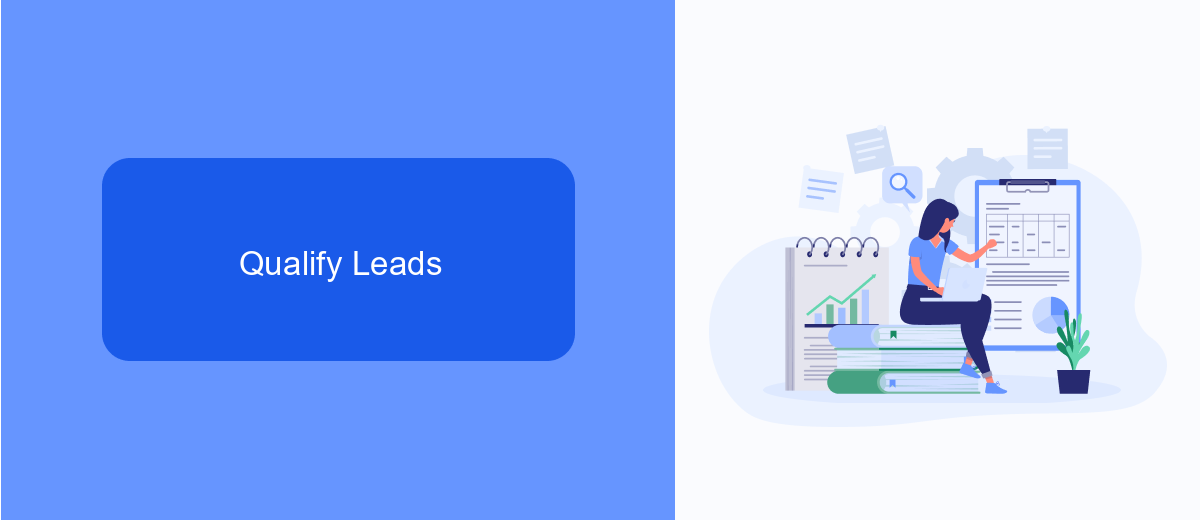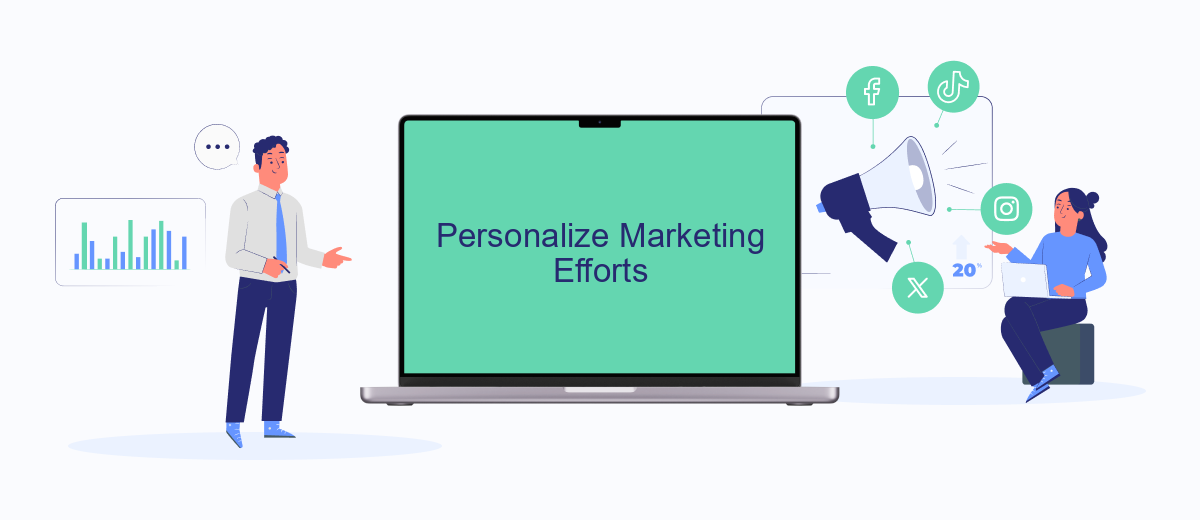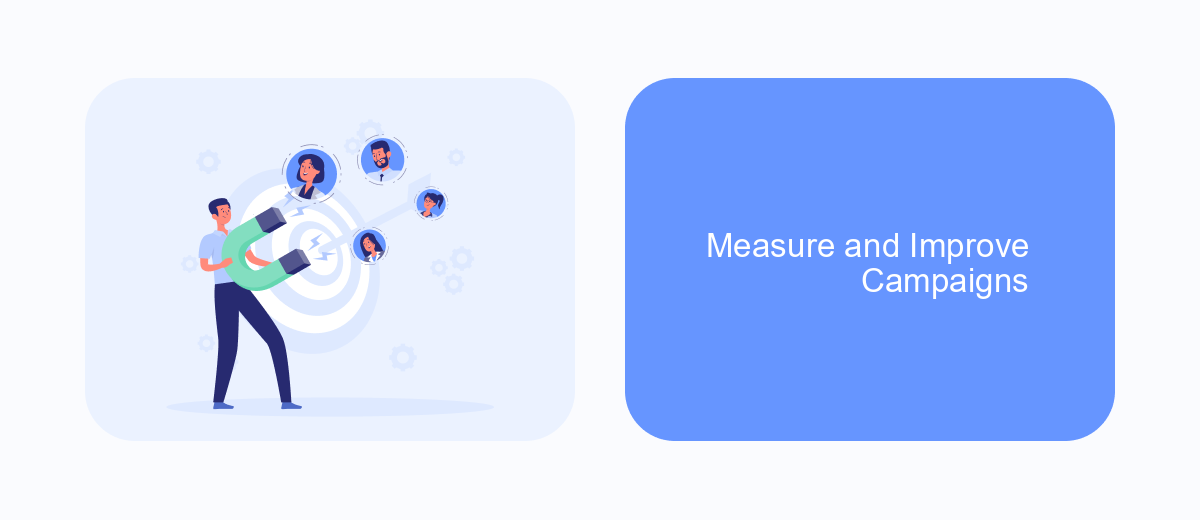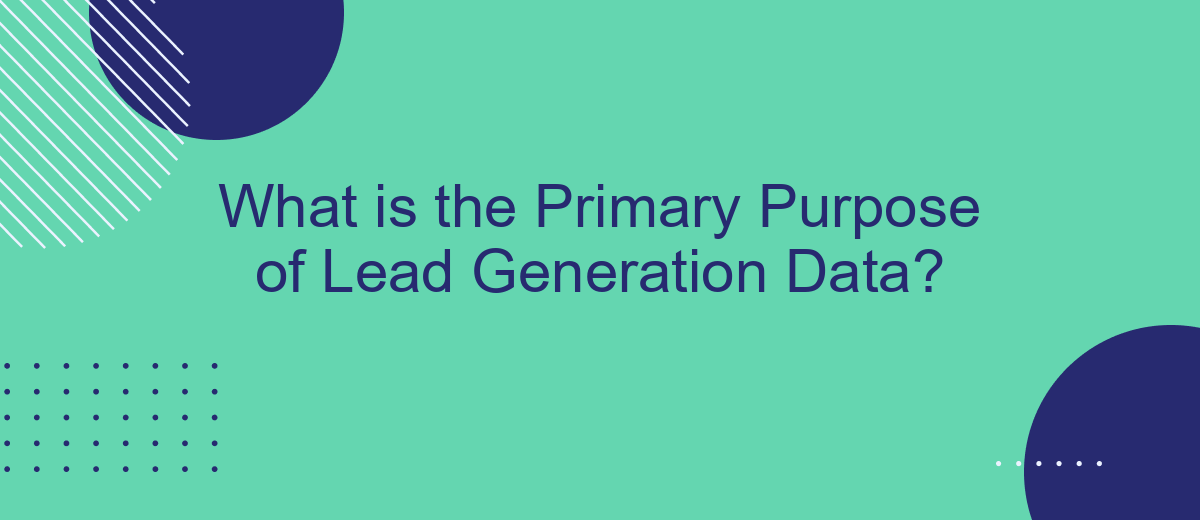Lead generation data plays a crucial role in modern marketing strategies, serving as the backbone for identifying and cultivating potential customers. By collecting and analyzing this data, businesses can tailor their outreach efforts, enhance customer engagement, and ultimately drive sales growth. Understanding the primary purpose of lead generation data is essential for optimizing marketing campaigns and achieving sustainable business success.
Identify Potential Customers
Identifying potential customers is a crucial step in the lead generation process. By understanding who your ideal customers are, you can tailor your marketing efforts to reach and engage them effectively. This involves analyzing various data points to create detailed customer profiles and segmenting your audience based on their behaviors and preferences.
- Demographic information: age, gender, location
- Psychographic data: interests, values, lifestyle
- Behavioral insights: purchase history, website interactions
- Firmographic details: company size, industry, job role
Utilizing tools and services like SaveMyLeads can streamline this process by automating data collection and integration from multiple sources. This allows businesses to maintain up-to-date customer profiles and make informed decisions on targeting strategies. By leveraging such technology, companies can efficiently identify and prioritize high-quality leads, ultimately boosting their conversion rates and overall marketing ROI.
Qualify Leads

Qualifying leads is a crucial step in the lead generation process, as it ensures that the leads you pursue are genuinely interested and have the potential to convert into customers. By evaluating leads based on specific criteria such as budget, authority, need, and timeline (BANT), businesses can prioritize their efforts on prospects who are most likely to engage with their products or services. This not only saves time and resources but also increases the efficiency of the sales team, allowing them to focus on high-quality leads that are more likely to result in successful conversions.
To streamline the process of qualifying leads, businesses can leverage tools and services that automate and optimize lead management. For instance, SaveMyLeads offers seamless integrations with various CRM systems and marketing platforms, enabling businesses to automatically capture and qualify leads based on predefined criteria. By using such services, companies can ensure that their lead generation efforts are more targeted and effective, ultimately leading to higher conversion rates and better return on investment.
Personalize Marketing Efforts

Personalizing marketing efforts is crucial for enhancing customer engagement and driving conversions. By leveraging lead generation data, businesses can tailor their marketing strategies to meet the unique needs and preferences of their target audience. This not only improves the customer experience but also increases the likelihood of successful interactions.
- Segment your audience based on demographics, behavior, and interests.
- Create personalized content that resonates with each segment.
- Utilize automated tools like SaveMyLeads to integrate and manage your data efficiently.
- Track and analyze the performance of personalized campaigns to optimize future efforts.
Using tools like SaveMyLeads can streamline the process of data integration, allowing businesses to focus on crafting personalized messages that drive engagement. By continually refining marketing strategies based on data insights, companies can build stronger relationships with their audience and achieve better results.
Measure and Improve Campaigns

To effectively measure and improve your lead generation campaigns, it is crucial to continuously monitor performance metrics. By analyzing data such as click-through rates, conversion rates, and cost per lead, you can identify which strategies are working and which need adjustment. This ongoing evaluation helps in optimizing your marketing efforts for better results.
One of the essential steps in this process is integrating your lead generation tools with analytics platforms. Services like SaveMyLeads can streamline this integration, allowing you to automatically transfer lead data to your CRM or other marketing tools. This seamless flow of information ensures that you have real-time access to the data needed for accurate analysis.
- Track key performance indicators (KPIs) regularly.
- Use A/B testing to compare different strategies.
- Leverage automation tools for efficient data management.
- Adjust your campaigns based on data insights.
By consistently measuring and refining your campaigns, you can enhance their effectiveness and maximize your return on investment. Utilizing tools like SaveMyLeads not only simplifies the data integration process but also ensures that you have the most up-to-date information to make informed decisions.


Drive Sales and Revenue
Lead generation data is a powerful tool for driving sales and revenue. By collecting and analyzing information about potential customers, businesses can tailor their marketing strategies to target the right audience more effectively. This targeted approach not only increases the likelihood of converting leads into paying customers but also enhances the overall customer experience, leading to higher satisfaction and loyalty. With accurate lead generation data, companies can identify trends and patterns, enabling them to make informed decisions and optimize their sales processes.
Integrating lead generation data with other business systems can further amplify its impact. Tools like SaveMyLeads facilitate seamless integration between various platforms, automating data transfer and ensuring that sales teams have up-to-date information at their fingertips. This streamlined approach reduces manual data entry, minimizes errors, and allows sales representatives to focus on engaging with prospects and closing deals. Ultimately, leveraging lead generation data through such integrations can significantly boost sales performance and drive revenue growth.
FAQ
What is the primary purpose of lead generation data?
How can businesses collect lead generation data?
Why is lead generation data important for marketing strategies?
How can lead generation data be integrated with other business systems?
What are the challenges associated with managing lead generation data?
What do you do with the data you get from Facebook lead forms? Do you send them to the manager, add them to mailing services, transfer them to the CRM system, use them to implement feedback? Automate all of these processes with the SaveMyLeads online connector. Create integrations so that new Facebook leads are automatically transferred to instant messengers, mailing services, task managers and other tools. Save yourself and your company's employees from routine work.
